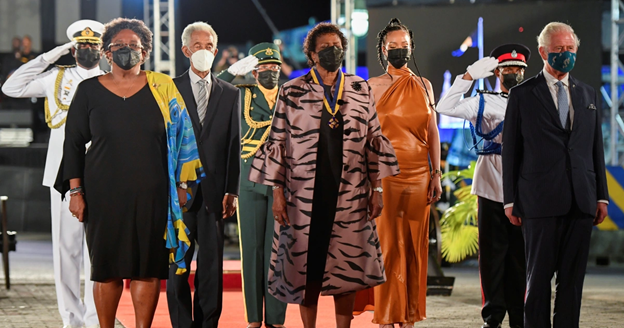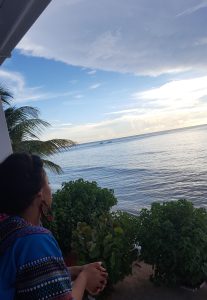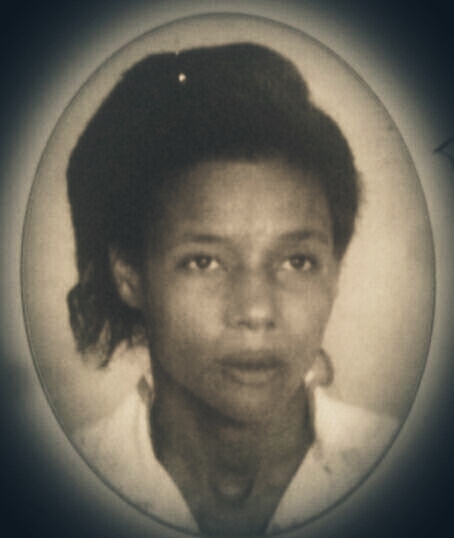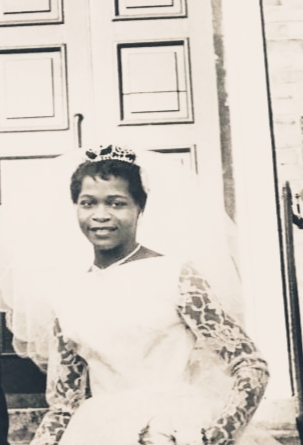Windrush Day is marked annually in the UK on the 22nd June. Vanessa Bovell-Clarke (she/her) who works in Student Support & Wellbeing Services at King’s College London, reflects on the women in her own family and the sacrifices they made so that those who followed them do not have to.
For many people, the word ‘Windrush’ often brings to mind images of sharply dressed, young black men and women setting sail for new opportunities and a new chapter of life in the United Kingdom. More recently, the word has become more synonymous with this same generation as well and even their children being forcibly sent away from the UK, labelled as illegal immigrants by the very same government who first requested their help to rebuild a post-war Britain in the 1940’s.
With both my paternal and maternal grandmothers no longer living, I often wonder what they would make of the Windrush scandal having worked so hard themselves to build lives and plant roots in what I now call home.
Clotelle Eudene Roach (or Granny Clo as she was known to me) was born in Black Rock, St Michael on the island of Barbados in 1937, one of four children. Orphaned by the age of 15, Clotelle quickly took on a maternal role and played a huge part in providing for her siblings along with her older sister, Sylvie.
To make ends meet, she worked jobs in catering and as service staff, in the homes of the wealthy (and mostly white) in Barbados. The remnants of British colonisation were clear to see across the island, with limited opportunities for many black Bajans and much of the island’s wealth circling amongst direct decedents of plantation and slave-owning families.
In 1958, Clotelle set sail for the UK in search of a new destiny once her husband, Ricardo had travelled to London ahead of her (as was often the case for couples at that time) and found and prepared a place for them to live. Once settled in East London, Clotelle came into her own and took on a plethora of roles including seamstress and school lunch lady as well as offering her skills in baking and sewing to private clients and friends in the local community.
Further across to the west side of the Caribbean, Hermine Gertrude Morrison (aka Granny Babs) was born in Cave Valley, Jamaica in 1941, the second youngest of 11 children. In a similar fashion, Babs came to England after being ‘sent for’ by her husband, Lesley after he had settled in London in 1963. Just like Clotelle, Babs also threw herself into multiple jobs including work in a shoe factory, wig making, catering and hairdressing.
Growing up, my grandmothers were the physical embodiment of home, stability, family, strength and damn hard work. I witnessed them prepare gargantuan feasts of brown stew chicken, rice and peas, fried flying fish and cou cou (a cornmeal-based dish, also Barbados’ national dish) for crowds of family, friends and even neighbours on a regular basis. Both were regular attendees and very much involved in the church; some of my core memories include Sunday services and church fetes. They did this all whilst working multiple jobs and fulfilling the role of mother in an era that viewed parenting as very much a solitary and gender-conforming role.
It was only as I grew older, that I recognised the gravity of what they had accomplished. As part of the Windrush generation, being amongst the first in their families to move their whole lives to an unfamiliar country was a massive feat in itself. Facing daily racism in said country was an additional struggle; my Granny Clotelle told us of a time she was stopped by a white woman in the middle of a market, who tugged at the back of her skirt and said, “Let’s see your tail then?!”
This generation faced an untold number of difficulties and struggles most of which were steeped in racism, despite being such an integral part of rebuilding the UK economy, filling roles in nursing, catering, manual labour, hospitality, cleaning and much more.
I wonder about the mental health of my grandmother’s, the burdens they had to bear, the pain behind smiles and the silent struggles that were shared with no one but God. Throughout all of this, they were able to bring such life, culture and happiness to their families, which I will forever cherish. Their struggles and personal sacrifices serve as a reminder to me that I do not wish to and nor do I have to, continue to be ‘strong’ at the expense of my wellbeing. I am lucky to have multiple paths that lay ahead of me that do not necessarily include children and motherhood, but where I am encouraged to speak my truth about injustice and my pain.

November 2021 Barbados Independence Ceremony. Left to right: Prime Minister Mia Mottley, Dame Sandra Mason, Rhianna, Prince Charles.
In 2021, Barbados became a republic, officially renouncing the UK and it’s Queen as Head of State. Jamaica, alongside many other Caribbean countries are set to soon follow. This true independence feels like a poignant reflection of the next generation, as we prepare to live life to the fullest, honouring the Windrush legacy as we do so.
References/Relevant Articles:
- https://www.theguardian.com/uk-news/2022/may/29/windrush-scandal-caused-by-30-years-of-racist-immigration-laws-report
- https://www.aljazeera.com/news/2021/11/29/barbados-set-to-become-a-republic-ditching-british-queen
- https://www.bbc.co.uk/news/uk-england-london-57554265
Want to Learn more about Equality, Diversity & Inclusion at King’s College London?
- Found out more by visiting our Equality, Diversity & Inclusion at King’s pages.
- Follow us on Twitter.
- Email the team at diversity@kcl.ac.uk


